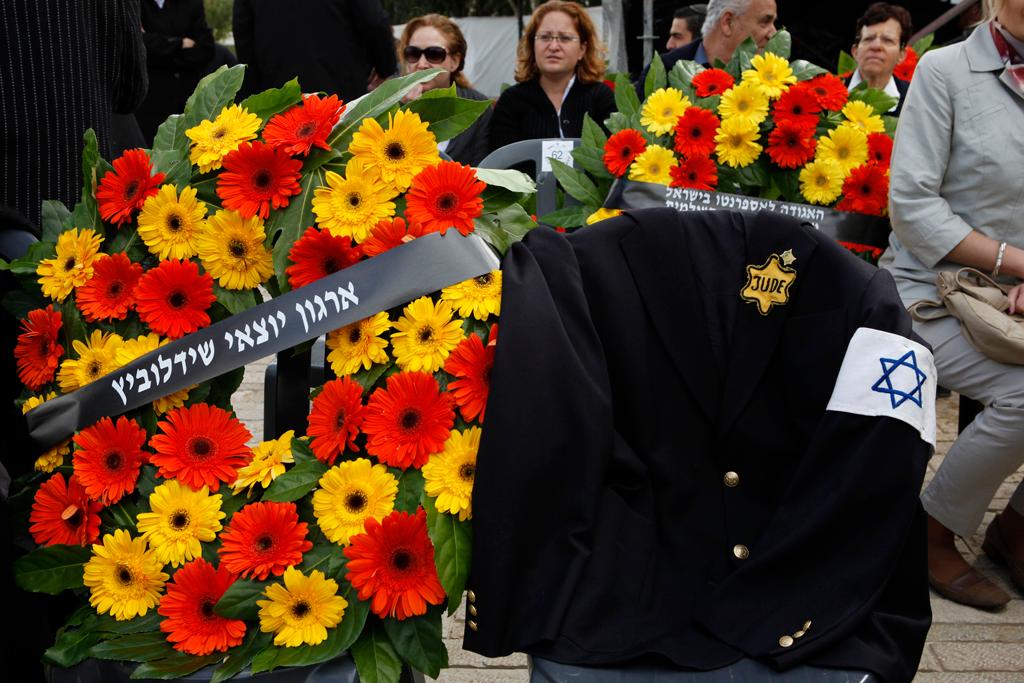Israel marks Holocaust Remembrance Day
A jacket belonging to Polish-born Israeli Holocaust survivor Mordechai Fuchs, who passed away three months ago, with a Star of David and “Jude”, German for Jew, written on it is placed on a chair during the annual Holocaust Memorial Day ceremony at the Yad Vashem Holocaust Museum in Jerusalem on April 19, 2012.
Israel came to a standstill on Thursday to mark a moment of silence as sirens wailed in remembrance of the six million Jews killed during the Nazi Holocaust in World War II.
The AFP reported that millions of Israelis stood in silence and traffic stopped while the sirens wailed at 10 a.m. on Thursday, part of an annual ritual that began at sundown on Wednesday.
Israelis also went to the Yad Vashem Holocaust memorial to read the names of loved ones who had died during the Holocaust, as part of a ceremony called "Every Person Has a Name." The ceremony's aim is to personalize the stories of those whose families and communities were destroyed by the war, said the Associated Press.
Zvi Shefet, an 87-year-old who was the sole survivor from his family and one of the few from his village, carried a list with 48 names of family and friends. Shefet, who is now a grandfather to eight children, said, "When I go to Yad Vashem, it is like I am going to the cemetery, to remember my family but also my community — all those who died and have no one left behind to even remember them or commemorate them."
More on GlobalPost: Israel stops 'fly-in' protests against its West Bank border policies
According to The Jerusalem Post, President Shimon Peres, Prime Minister Benjamin Netanyahu and Supreme Court President Asher Grunis were expected to attend the ceremony at Yad Vashem.
In remarks that have drawn criticism from within Israel and abroad, Netanyahu said on Wednesday night, "People who refuse to see the Iranian threat have learned nothing from the Shoah (Holocaust)," according to the AFP.
Netanyahu said, "They are afraid to speak the truth, which is today, as it was then, that there are people who want to annihilate millions of Jews. The truth is that an Iran in possession of nuclear arms is an existential threat to the State of Israel."
More on GlobalPost: Iran arrests 15 on charges of spying for Israel: report
The Guardian reported that according to studies, around a quarter of Holocaust survivors in Israel struggle to pay for basic necessities such as food, heat, housing and medication, living below the poverty line. The government announced an increase in funds for survivors, from 206 million shekels ($54 million) to 225 million ($60 million).
More on GlobalPost: Has Israel's regional isolation helped protect its economy?
Every day, reporters and producers at The World are hard at work bringing you human-centered news from across the globe. But we can’t do it without you. We need your support to ensure we can continue this work for another year.
Make a gift today, and you’ll help us unlock a matching gift of $67,000!
